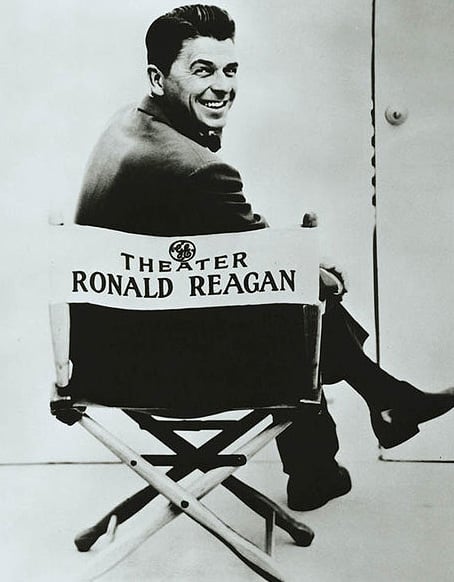With the presidential election still a year away, Bill Kristol decided to throw in the towel. “It seems clear that 2012 isn’t going to be another 1980,” Kristol lamented on the website of The Weekly Standard. Neither the Republican nominee nor the next president of the United States will be another Ronald Reagan.
Kristol arrived at this conclusion after months of speculating that a who’s who of Republicans, possibly the whole list of recent keynote speakers at Washington conservative confabs, might deliver the GOP field from mediocrity. Many other center-right pundits also played this game, searching in vain for the next Reagan the way young children play Where’s Waldo?
Why are conservative commentators so forlorn? By many of their standards, this is the most conservative Republican presidential field in recent memory. All candidates have said they oppose tax increases, even if outnumbered ten dollars to one by spending cuts in a grand deficit-reduction bargain. They all claim to oppose abortion, though Herman Cain may need a bit more tutoring on how to make such claims convincingly.
Except for Ron Paul, Jon Huntsman, and the almost invisible Gary Johnson, the Republican presidential candidates all favor Kristol’s “neo-Reaganite” foreign policy promoting “benevolent global hegemony.” And even Huntsman appears to support war with Iran, while Johnson assured The Weekly Standard he was open to various “humanitarian” interventions.
Mitt Romney, the field’s lone RINO (Republican in name only), can barely break 30 percent against a revolving door of political nobodies to his right. Only a remarkable series of implosions by his largely untested rivals has kept the Republican-establishment favorite in the race. Even Romney was conservative enough for Ann Coulter, National Review, and most of the talk-radio right in 2008.
The Republican primary voters are themselves looking for another Reagan: a plain-spoken man (or woman) with strong beliefs, good values, and the backbone to avoid compromise with liberals. Somebody whom the elites, with their fancy book learnin’, will ridicule as dumb but who knows simple truths about God and country.
Beltway conservatives have always assumed the next Reagan would look like them. That’s why they have been pining for the polished policy wonk Paul Ryan, the avuncular Mike Pence, and Chris Christie, the combative New Jersey governor.
What the Tea Party-infused Republican base appears to prefer, however, is a Reagan successor in their own image: a conservative Christian mother; a Republican businessman who has done his time behind the talk-radio microphone; a tough-talking Texan. The one exception who has caught their fancy is another Reagan-like hero of the last war, Newt Gingrich.
None of this is to say that these candidates are any good. Gingrich, who has flirted with more liberal policy positions than women, has always talked a better game than he has played. Rick Perry cannot even remember the three federal agencies he would like to abolish. Cain has an even weaker grasp of detail and a tax plan that is quite vulnerable to statist sabotage.
But they are all repeating platitudes they half-learned from movement polemicists. Michele Bachmann’s repertoire consists almost entirely of Republican applause lines: “This cake is baked! Barack Obama is a one-term president!” In the presence of such half-baked cakes, Gingrich appears to be a towering intellect.
The Tea Party portrayal of Reagan isn’t entirely accurate. Whatever his faults, the 40th president at least understood the lines he was delivering. But the right’s Reagan mythology, which is as oversimplified as the left’s attacks on an “amiable dunce” were ill founded, has also been written and circulated by the Beltway right.
Neoconservative analysts rejected plausible Republican alternatives who thought even slightly outside the box on foreign policy. When Indiana Gov. Mitch Daniels suggested a reevaluation of U.S. commitments abroad, the Washington Post’s Jennifer Rubin complained it was unclear “whether he views foreign policy as anything more than a cost-control issue.” Kristol called Mississippi Gov. Haley Barbour, a former RNC chairman, “Hee-Haw” for questioning an indefinite military presence in Afghanistan.
Such heretical thoughts made Daniels and Barbour “liberals,” much like Ron Paul, who takes some of the most conservative positions in the GOP field—if we believe the conservative movement means what it says about cutting government and overturning Roe v. Wade. Some in the movement have too often prioritized ideology over competence, rhetoric over results, anti-elitism and phony populism over prudence, jingoism over honest patriotism, and liberal-baiting over conservatism.
Now professional conservatives are dismayed by their 2012 choices, because the Republican rank and file have followed these priorities to a T, even at the risk of losing the election. For the Beltway right, a campaign already full of clichés has confirmed yet another: Be careful what you wish for; you just might get it.



Leave a Reply